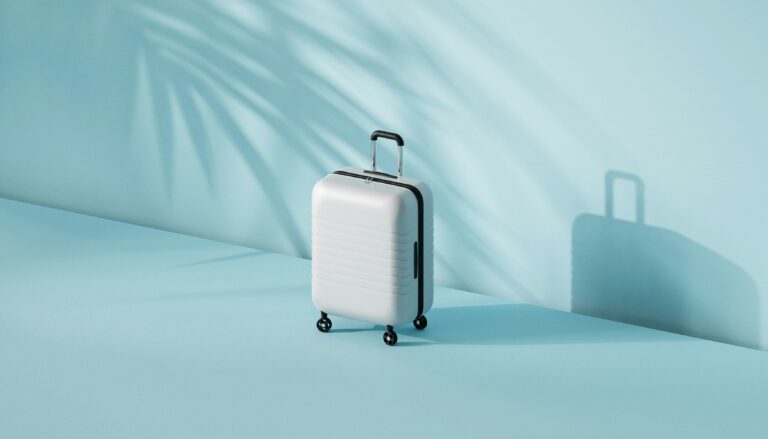Don’t let missing bags ruin your Easter break – follow this expert advice
Key Points:
- Travel expert shares essential steps to take if your luggage goes missing during Easter travel, with nearly 1.8 million bags lost or stolen in 2024
- Expert provides guidance on filing reports, understanding airline obligations, and maximising compensation for lost baggage
- Travel specialist recommends taking photos of your luggage and contents before travel to strengthen claims and speed up the recovery process
With Easter just around the corner, millions of Brits are preparing for holiday getaways, but the excitement of travel often comes with anxiety about lost luggage. This concern is well-founded—in 2024, approximately 1.8 million bags were reported as lost or stolen globally.
“Easter is one of the busiest travel periods, and unfortunately, this means a higher risk of luggage going missing,” explains Dawn Morwood, Co-Director of Cheap Deals Away UK, a company that helps people find value-for-money holidays without overpaying.
Below, Morwood outlines exactly what you should do if you find yourself staring at an empty baggage carousel this Easter, from the immediate steps to take at the airport to navigating the compensation process.
Immediate Steps To Take At The Airport
The moment you realise your luggage hasn’t arrived, time becomes valuable. “Don’t leave the airport without taking action,” Morwood advises. “The first 24 hours are key for reporting missing luggage and starting the recovery process.”
1. Report Missing Luggage Immediately
Head straight to your airline’s baggage service desk in the arrivals area before leaving the airport. This is where you’ll file a Property Irregularity Report (PIR), which is essential documentation for any future claims.
“When filling out the PIR, provide as much detail as possible about your bag—color, brand, size, any distinguishing features like stickers or ribbons,” says Morwood. “Be specific about the contents, especially if you’re carrying valuable items.”
2. Keep All Your Travel Documents
Hold onto your boarding pass, baggage claim tags, and a copy of your PIR. These will be needed if your bag isn’t found quickly and you need to make a claim.
“Take photos of these documents with your phone as backup,” Morwood suggests. “Airlines can sometimes misplace paperwork, so having your own copies is important.”
3. Ask About Immediate Compensation
Many travelers don’t realise airlines often provide emergency funds for essential items when luggage is delayed.
“If you’re away from home without your belongings, ask the airline about their policy for emergency purchases. Most will offer some compensation for toiletries and essential clothing while they locate your bag,” Morwood explains.
Understanding Airline Obligations
Different rules apply depending on whether your flight was domestic or international.
For International Flights
Under the Montreal Convention, airlines can be liable for up to approximately £1,300 per passenger for lost, damaged, or delayed baggage.
“Airlines have 21 days to find your luggage before it’s officially considered lost,” says Morwood. “After this period, you can submit a claim for the value of your lost items, up to the maximum liability limit.”
For Domestic UK Flights
For flights within the UK, regulations vary by airline, but they must provide reasonable compensation for proven losses.
“Always check the airline’s Conditions of Carriage, which outline their specific responsibilities. This information should be on their website or available upon request,” Morwood advises.
How To Maximise Your Compensation
Getting fair compensation requires thorough documentation and persistence.
1. Document Everything You’ve Lost
“Create a detailed inventory of everything in your suitcase, with approximate values and purchase dates,” Morwood recommends. “If you have receipts for expensive items or photos of your packed bag, these will significantly strengthen your claim.”
2. Keep Receipts For Emergency Purchases
If you’ve had to buy replacement items while waiting for your luggage, save every receipt.
“Some airlines reimburse reasonable expenses for delayed baggage even if it’s eventually returned to you. What’s considered ‘reasonable’ varies, but usually covers basics like underwear, toiletries, and a change of clothes,” says Morwood.
3. Submit Your Claim Properly
Claims should be submitted in writing to the airline, typically within 7 days for damaged baggage and 21 days for delayed baggage.
“Be persistent with follow-ups. Airlines deal with thousands of claims, and squeaky wheels often get the grease,” Morwood points out. “If your claim is rejected unfairly, you can escalate to the Civil Aviation Authority or consider small claims court for significant losses.”
4. Check Your Travel Insurance Coverage
Travel insurance policies usually offer better compensation than airlines for lost luggage.
“Travel insurance often provides higher payout limits and broader coverage than what you’ll get from the airline alone,” explains Morwood. “However, you’ll typically need to pursue the airline claim first before your insurer will pay the difference.”
Dawn Morwood, Co-Director of Cheap Deals Away UK, comments:
“While we can’t completely eliminate the risk of luggage going missing, travelers can take steps to protect themselves before even leaving home. I recommend taking photos of your packed suitcase and its contents, especially any valuable items. Keep a digital copy of your itinerary, accommodation details, and contact information inside your luggage as well as in your carry-on.
“Consider placing an Apple AirTag or similar tracking device in your bag, which can help locate it if it goes astray. Pack essential medications, a change of clothes, and valuable items in your carry-on rather than checked luggage. Finally, make your bag stand out with distinctive tags or straps to prevent another traveler from accidentally taking it.
“Remember that airlines hate losing your luggage almost as much as you do—it costs them money and damages their reputation. Most luggage isn’t truly lost forever but rather delayed, and over 95% of mishandled bags are eventually reunited with their owners. Stay calm, follow the proper procedures, and you’ll improve your chances of seeing your belongings again.”
